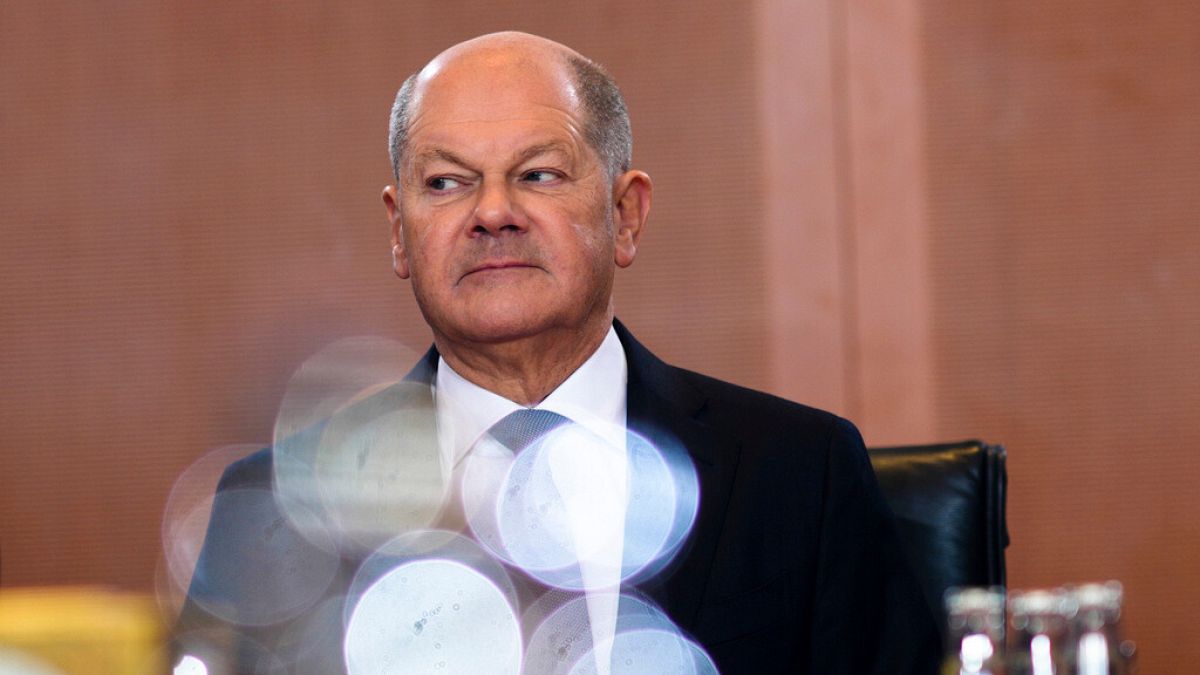
German Chancellor Olaf Scholz has lost a no-confidence vote in parliament, paving the way for its dissolution and fresh national elections.
Scholz gained 207 votes in the 733-seat parliament, nowhere near the 367 majority he needed to hold onto power.
The former leader was widely expected to lose the vote, which was held after the government’s acrimonious three-way coalition collapsed in spectacular fashion over deep divisions in fiscal policy.
Scholz himself supported an early general election, but speculation was rife ahead of the vote that the far-right Alternative for Germany (AfD) party had plans to sabotage an early election by voting for Scholz to stay against his will.
President President Frank-Walter Steinmeier is now set to decide whether or not to dissolve parliament. Once dissolved, an election must be held within 60 days.
The no confidence vote is only the sixth in the country’s post-war history. It comes at a time when Germany’s economy is suffering from two years of poor growth and Europe braces for the inauguration of president-elect Donald Trump in the US, who has promised sweeping changes to US foreign policy.
Fiery debate
The confidence vote followed a fiery parliamentary session in which the leaders of all of the parties spoke, kickstarting their individual election campaigns as well as throwing blame on each other for the government’s demise.
Scholz heaped criticism onto the pro-business Free Democratic Party (FDP), who effectively caused the ruling coalition to collapse when it removed its ministers after Scholz fired FDP finance minister Christian Lindner.
The German leader accused the FDP of “weeks-long sabotage” and reiterated his disagreement with its economic proposals that ultimately broke the coalition apart. Scholz called for modernisation of Germany’s constitutionally-enshrined debt brake which restricts structural budget deficits in order to limit government debt.
Lindner, who sat through fierce attacks against him by the German leader, said later on that Scholz had “no strength” for fundamental change and reiterated his policies he said were critical for Germany to revive its faltering economy.
- Are conservatives set to take back power in Germany? | Radio Schuman
- German chancellor Olaf Scholz faces vote of confidence: What can we expect?
Elsewhere, Scholz brought up his familiar talking points of providing support for Ukraine and justified his reluctance to send the war-torn country Taurus missile — his longstanding stance that has faced fierce criticism from the opposition.
Of his tenure, Scholz concluded: “No voter could have anticipated the challenges we would face over the last three years”.
He faced heckling from the leader of the Christian Democratic Union (CDU), Friedrich Merz, who gave an impassioned speech whereby he accused Scholz of treating the FDP with “impudence” — adding fuel to rumours that the CDU might recruit the FDP as a potential coalition partner.
Merz went so far as to say that Scholz had embarrassed Germany on the European stage, and noted the three parties that made up the previous government “didn’t belong together at all”.
His sentiment was echoed by leader of the Green party, the third party in the now-collapsed coalition, Robert Habeck who admitted of the former government, “We were annoyed with each other, and the traffic light coalition in many ways deserved its bad reputation.”
Nevertheless, Habeck accused Merz of being unable, and unwilling, to forge consensus, in what would inevitably be a new coalition should the CDU hold on to its projected vote share in recent polling.
What’s next?
Scholz is set to propose the dissolution of the Bundestag to Steinmeier who will decide whether to do so.
Steinmeier, who indicated previously he would be willing, must then dissolve parliament within 21 days following the request.
New elections should then be held within 60 days, as per the constitution. An election date has been slated for the 23 February 2025, meaning Steinmeier would have to make his decision on 27 December.
According to the latest polling by public broadcaster ZDF, the CDU is currently topping the polls with 33%, short of a majority.
Friederich Merz has promised — among other things — a “fundamental change” in migration policy including the abolishment of subsidiary protection for asylum seekers. Such a change would involve a Europe-wide amendment to the Geneva Convention which currently protects the right to asylum.
Merz has also proposed limiting social benefits for some asylum seekers and outsourcing asylum procedures to non-EU countries, a policy championed by Italian Prime Minister Giorgia Meloni in Albania which has faced numerous legal setbacks.
It is unclear which party could be part of a harmonious coalition with the CDU. The AfD are currently in second place with 17% of the projected vote, however, Merz has ruled out the possibility of working with them.
The SPD have taken third place with the Greens polling 14%. The FDP has seen its ratings plummet, currently holding 4% of the vote, according the projections.





